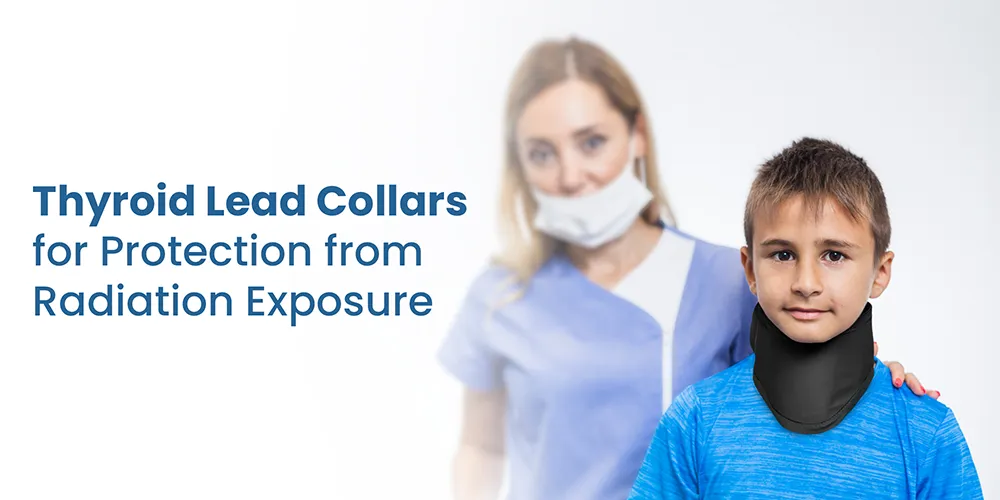The thyroid gland is an organ located in the neck. It controls metabolism, growth, and hormonal balance in the body. Its structure is delicate, and it is highly sensitive to ionizing radiation. It is one of the most vulnerable parts of the body during medical or dental imaging procedures that use X-rays. Thyroid lead collars, also known as thyroid shields, ensures this important gland is not exposed to any form of unnecessary radiation.
Why Thyroid Lead Collars Are Important?
Even small doses of radiation can damage the thyroid gland, leading to an increased risk of thyroid dysfunction, nodules, or even thyroid cancer. Studies have indicated that patients and healthcare professionals exposed to cumulative radiation are at a significantly higher risk. For example, a study published in Radiation Research demonstrated a direct relationship between occupational radiation exposure and thyroid malignancies.
Thyroid lead collars are constructed from lead or lead-equivalent material and can be used to absorb up to 99% of the radiation which is directed at the neck. They are lightweight and ergonomic, making it easy to get rid of most of the risks due to radiation.
Radiologists and dentists often have to encounter scatter radiation in their work for diagnostic imaging through X-rays, CT scans, or fluoroscopy. Getting exposed to regular doses from long-term exposure can have terrible consequences. In fact, by wearing thyroid lead collars, professionals protect themselves from radiation doses, thereby ensuring their long-term health and continuing safe work.
For Dental Patients
X-rays are often a prerequisite in dental diagnosis of oral disorders, but in the case of X-ray beam proximity to the thyroid gland, protection is key. Thyroid lead collars should be supplied to patients whenever they undergo a procedure like panoramic dental X-rays, especially among children and pregnant women, as they are easily prone to radiation damage.
Beyond Dental Practices
Thyroid lead collars are vital in all medical imaging environments, from hospitals to specialized diagnostic centers. Their use aligns with the “As Low As Reasonably Achievable” (ALARA) principle, ensuring radiation exposure is minimized without compromising diagnostic quality.
Lead collars provides safety for health workers and patients, protecting the thyroid gland. Use of such accessories in routine practices prevent conditions brought about by radiation exposure. It also speaks to how a proactive approach to safety in medical and dental imaging environments may promote a proper safety culture in healthcare.







